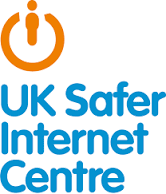 |
Keeping children and young people safe online is one of the biggest challenges facing society today and it is all of our responsibility to ensure that children are educated to make positive, informed choices when they are online. Have a conversation with children about using the internet safely responsibly and positively. Whether you are parent, grandparent, foster carer, aunt, uncle or older sibling – we can all play a role in empowering children to enjoy their time online.
We hope you find this Newsletter informative and helpful, and we want to work with Parents and Carers to promote the positive use of technology to make the online world a better and safer place for us all.
Online Safety Newsletter
 |
 |
 |
 |
What children need to know about online bullying.
Click Here - Short videos for parents and carers: delivering online safety at home
Click here – Social Media Guides
With the threat of offenders using online live streaming platforms increasing there is a need to educate children about the associated risks. #WhoIsSam is a short animation that highlights the importance of parents and carers talking openly to their children about:
- Being safe online
- Healthy relationships
- Speaking out if anything happens online that worries them or doesn’t feel right
https://www.internetmatters.org/parental-controls/
Parental controls are the names for a group of settings that put you in control of what content your child can see. Combined with privacy settings these can help you protect your children from the things they shouldn't see or experience online.
Click here – WhatsApp guide for parents
YouTube safety factsheet
These tips will help you to set rules for your child about accessing videos on the internet and their online behaviour, and support them to understand the risks and what to do if something happens.
Roblox parental controls
Click here – Roblox safety tips for parents
Tik-Tok Parents Guide
Click Here - TikTok Update Parental Controls with Family Pairing Feature.
Information for children
Using the internet at home is different to using the internet at school. At school we have special filters that make searching for things safe and you may not have these on your home computers. Here are some ways to keep you safe on the internet.
Think SMART and follow these rules when using the internet (Taken from KidsSmart).
SAFE
Keep safe by being careful not to give out personal information when you're chatting or posting online. Personal information includes your email address, phone number and password.
MEETING
Meeting someone you have only been in touch with online can be dangerous. Only do so with your parents or carers permission and even then only when they can be present. Remember online friends are still strangers even if you have been talking to them for a long time.
ACCEPTING
Accepting emails, IM messages, or opening files, pictures or texts from people you don't know or trust can lead to problems - they may contain viruses or nasty messages!
RELIABLE
Someone online might lie about who they are and information on the internet may not be true. Always check information with other websites, books or someone who knows. If you like chatting online it?s best to only chat to your real world friends and family
TELL
Tell your parent, carer or a trusted adult if someone or something makes you feel uncomfortable or worried, or if you or someone you know is being bullied online.
Child Safety Online:
What Parent and Carers need to know guides can be found at - https://nationalonlinesafety.com/guides
Online E-Safety useful links & Information
Child Sexual Exploitation
Parents are being urged to familiarise themselves with the signs of child sexual exploitation (CSE) as part of the It's not okay campaign. CSE is a priority for all local safeguarding children boards in the region and the It's not okay website and campaign has been put together by Project Phoenix – a unique collaboration of public and third sector partners throughout Greater Manchester including Tameside Council.
Useful information on spotting the signs of CSE and getting help can be found here – www.itsnotokay.co.uk/parents/
The key message to remember is that child sexual exploitation is NEVER the young person's fault. Abusers are very clever in the way they manipulate their victims.